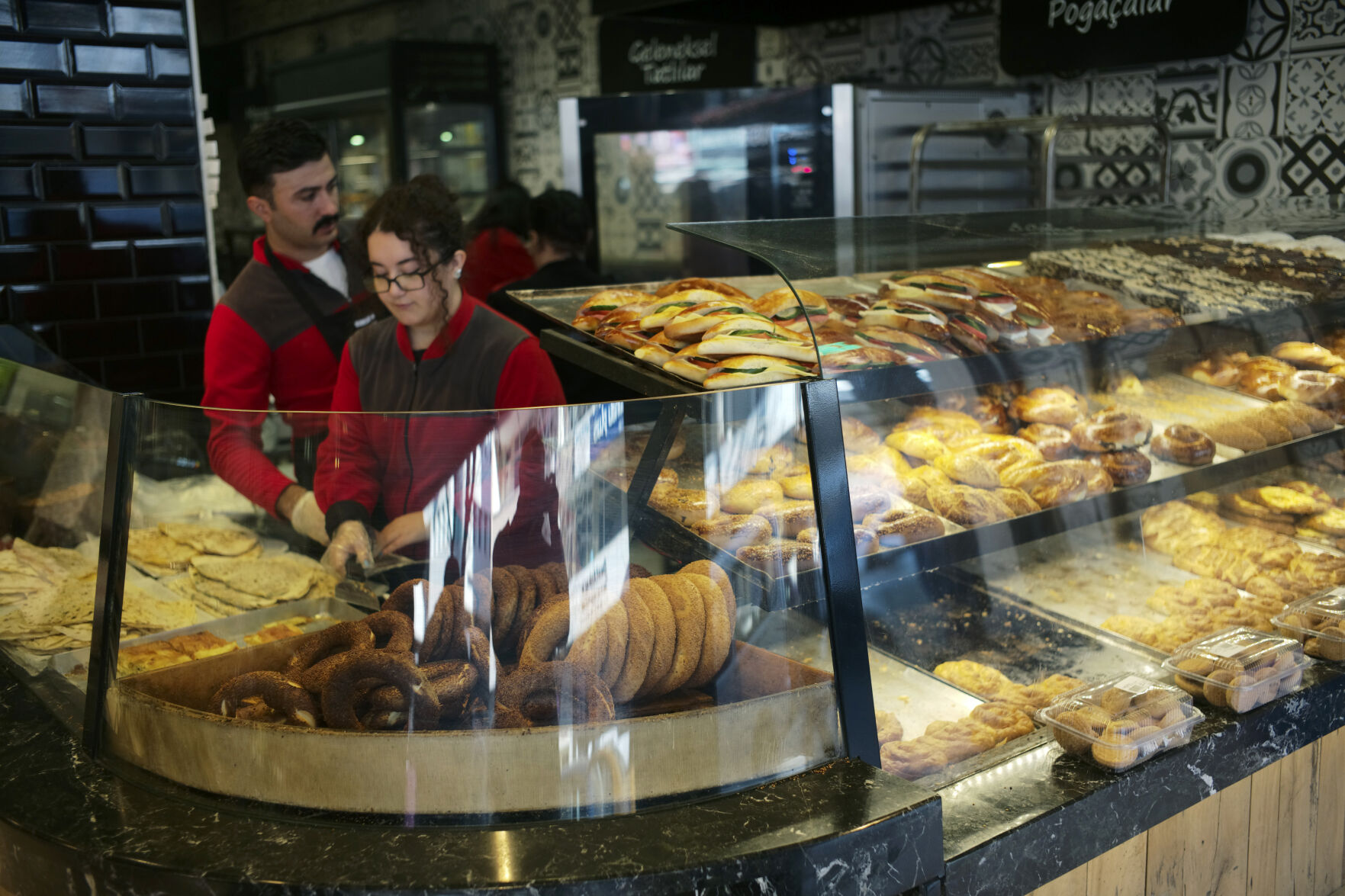ANKARA, Turkey — Annual inflation in Turkey slightly eased in November for the first time in more than a year, according to official figures released today, although it remains close to 24-year highs.
Consumer prices for the year rose by 84.39% in November, down from 85.51% recorded in October, the Turkish Statistical Institute announced. The monthly inflation rate was 2.88% in November, compared with 3.51% in the previous month.
It is the first time that annual inflation has eased since May 2021.
“As we have previously stated through various media, we have left the peak in inflation behind us and entered a downward trend — unless there is an unexpected global development,” Treasury and Finance Minister Nureddin Nebati tweeted on Monday.
While the pandemic and Russia’s invasion of Ukraine have stoked inflation around the world, economists believe that inflation in Turkey was additionally fueled by President Recep Tayyip Erdogan’s belief that high borrowing costs lead to higher prices. Traditional economic thinking says that raising rates helps rein in inflation.
Turkey’s central bank has slashed interest rates by 5 percentage points since August, down to 9% despite high inflation that has deepened a cost-of-living crisis in the country. In contrast, central banks around the world have been raising rates to fight soaring inflation.
Erdogan has said his model — which prioritizes growth, investments, employment and exports — is expected to yield results in the new year.
The sharpest increases in annual prices were in the transportation sector, at 107%, followed by food and non-alcoholic drinks prices at 102.55%, according to official data.
Some experts have questioned the state institutes’ figures and the Inflation Research Group, which is made up of independent economists, said on Monday that Turkey’s true inflation rate for November is 170.7%.


